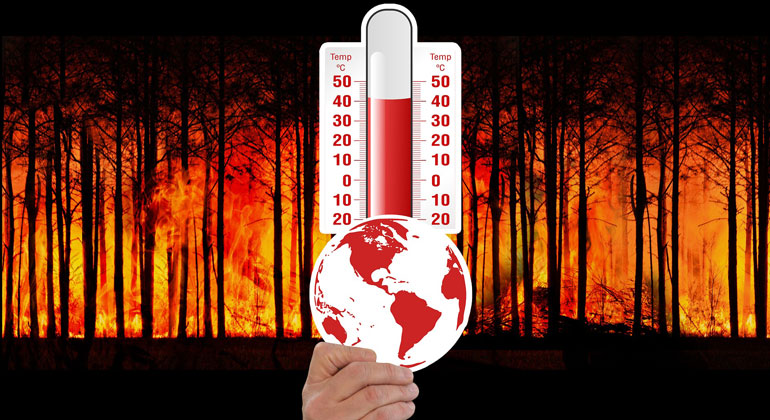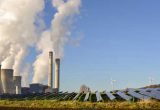The displacement society
CO2 emissions are rising worldwide, glacier melt is increasing dramatically, forest fires are catastrophic and the oceans are hotter than ever before. 2023 was the hottest year in millions of years.
This is according to the new annual status report from the World Meteorological Organization (WMO). According to the report, all climate change indicators reached record levels. In Canada, the record levels of forest fires in 2023 destroyed an area 13 times larger than the area previously considered normal. Three years ago, the Ahr Valley catastrophe caused damage of over 40 billion euros in this country. Do we need disasters that cause hundreds of billions in damage before we wake up? And even more deaths than the 180 people who died in the 2021 flood disaster?
We are a displacement society
Climate change is extremely dangerous, but compared to five years ago, when the Fridays for Future-movement woke us up, there is extremely little awareness of this survival issue. In Germany, the current wars, migration and pensions are currently overshadowing all other issues.
In this situation, the interest of the old energy industry in the continued sale of fossil fuels is also increasing. According to the Potsdam Institute for Climate Impact Research, the sale and burning of all the reserves of coal, gas and oil already found today could cause global temperatures to rise by around 15 degrees. Perhaps this is why Shell has just lowered its climate protection targets again. The potential billions in profits are just too good to be true.
But can we still be saved? Does Africa first have to become uninhabitable and Europe Africa before we wake up and stop slumbering?
The good news from the WMO: the expansion of renewable energies increased faster in 2023 than in the last 20 years. The installed capacity of renewables grew by 500 gigawatts in 2023. That is 50 percent more than in 2022. China alone installed more solar systems in 2023 than the entire rest of the world in 2022.
Professor Anders Levermann from the Potsdam Institute for Climate Impact Research has two reasons for Germany’s displacement society.
Firstly, when it comes to climate protection and renewable energies, we are still discussing sacrifice rather than profit and secondly, the economy is not about de-industrialization, but on the contrary about the urgently needed structural change so that China and the USA do not completely leave us behind. Investing in climate protection is an economically urgent investment in the future.
It is also important for the jobs of tomorrow. The International Renewable Energy Agency (IRENA) in Dhubai has calculated that we have created over eleven million new jobs worldwide in the last 20 years through renewable energies. By 2050, there will be 50 million new jobs. If we don’t want to be left behind by China and the USA in terms of e-cars and renewables, we need to invest more in structural change than we have done so far. Those who come too late will be punished by life or global economic development.
The biggest advantage of renewables is the sensational fall in prices. In 2000, the production of a kilowatt hour of solar power in Germany cost 70 cents, today it costs around five cents. In Africa, India and Arabia it costs around one euro cent. And this uniquely favorable development is far from over.
The result: solar power is social power – also and especially for the socially disadvantaged and for people in poor countries. However – and Professor Levermann is right about this – the environmental movement is also communicating this far too little. These problems are not solved by suppressing them, they only become more and more expensive.
Source
Franz Alt 2024 / Translated with www.DeepL.com/Translator








